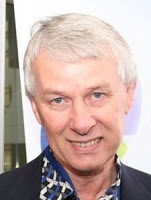BioMed Central has published an interesting Q&A session on its Biome blog with Nobel Laureate Richard Roberts about why he believes in SMRT Sequencing and thinks non-users should take another look at it, too. He also discusses the critical need for funding to support the functional annotation of the genomes being sequenced, including for new bioinformatics tools.
“We should be greatly increasing our efforts to gain functional insights into the millions of genes we are discovering by sequencing and for which we either have no idea of what they do, or many of our predictions are simply wrong,” he says.
The Q&A is a follow-up to the Correspondence article that he co-authored for Genome Biology, which has also spurred the journal to host a tweet chat on Wednesday this week. In the interview, Roberts discusses why he wrote the article and why he’s excited about SMRT Sequencing, particularly for bacterial genomes and for studying methylation, where it “has yielded a plethora of new and interesting results” for his work.
Asked what compelled him to write a commentary specifically on Pacific Biosciences’ SMRT Sequencing technology, he responds, “There has been a misconception in the scientific research community that the method is very inaccurate. In fact it is the most highly accurate of all of the Next-Gen sequencing technologies available. This is because the errors, while high on a single read, are completely random and disappear statistically as more reads are made.”
Be sure to participate in the upcoming tweet chat (#SMRTseq) on July 31st at 11 a.m EST / 4 p.m. BST, which will be hosted by the other co-authors of the Genome Biology Correspondence article, Mike Schatz and Mauricio Carneiro, along with several other guest panelists. More information is available here.
